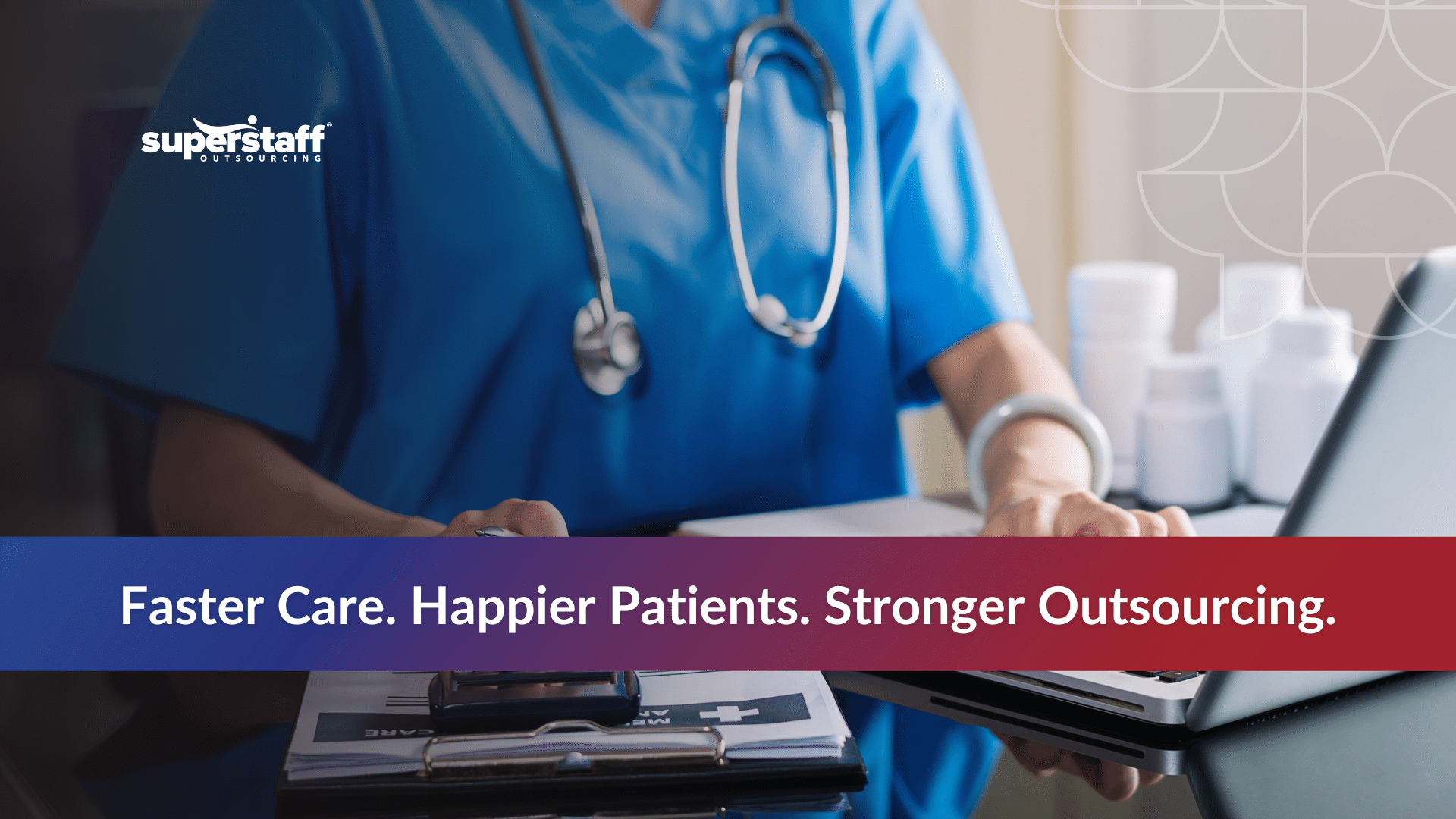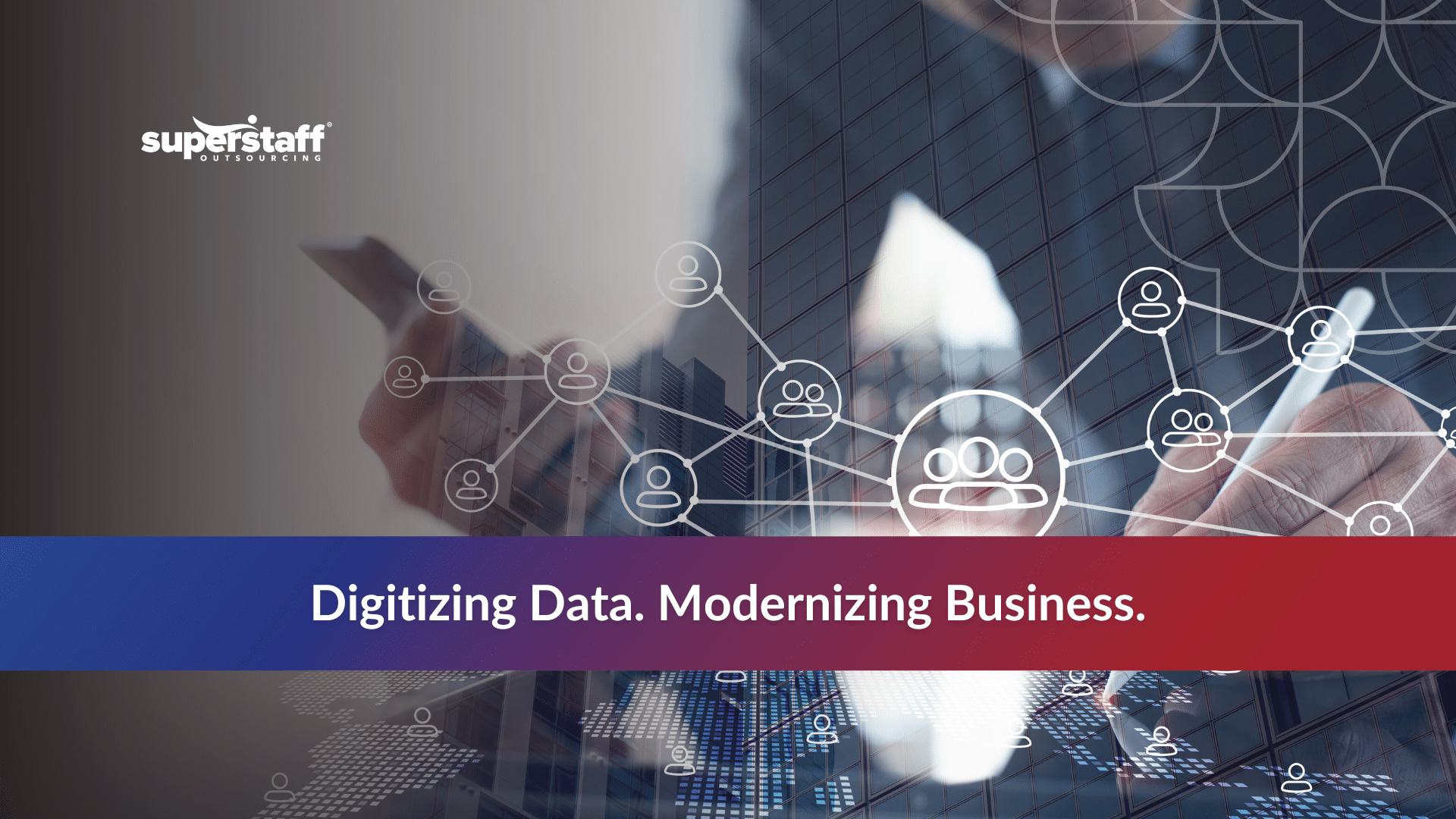
The rise of artificial intelligence (AI) and big data has revolutionized healthcare operations, powering predictive diagnostics, personalized treatments, and faster administrative workflows. Yet, this digital acceleration comes with an equally pressing challenge: protecting sensitive patient information. As healthcare organizations integrate automation and analytics into every layer of care, concerns about data breaches, ethical AI use, and cross-border data handling have intensified—making healthcare data compliance more critical than ever.
To meet growing demands while ensuring privacy and integrity, many healthcare providers are turning to offshore partners. Outsourcing has proven essential for scaling operations efficiently, from medical billing and claims management to patient support and data analytics. However, this global collaboration also raises complex compliance challenges, as data flows across multiple jurisdictions governed by varying laws such as HIPAA, GDPR, and other regional mandates.
The key to success lies in balancing offshore efficiency with airtight data protection and compliance systems. By aligning people, processes, and technology, healthcare organizations can safely leverage the advantages of AI and big data—without compromising patient trust. This blog explores how offshore healthcare operations can remain compliant and secure amid rapid technological change, highlighting the frameworks, practices, and partnerships that make global protection possible in the digital age.
How AI and Big Data Are Transforming Healthcare Workflows
The healthcare industry’s shift toward AI and big data has transformed how patient data is processed, protected, and leveraged for better outcomes. Automation now supports nearly every stage of healthcare operations—from clinical decision-making to back-office administration—enabling faster, more accurate, and data-driven care.
Predictive analytics has become a cornerstone of modern medicine. Hospitals and clinics use algorithms to forecast disease outbreaks, predict patient readmissions, and identify high-risk individuals before symptoms escalate. Meanwhile, AI-driven automation supports billing and claims processing, reducing manual errors and accelerating reimbursement cycles. Outsourced teams specializing in medical data processing help manage these massive workloads, making healthcare compliance outsourcing a critical part of global efficiency.
Beyond clinical care, big data analytics shapes everything from patient engagement to public health research. Insights drawn from millions of anonymized health records guide better treatment protocols and policy decisions. However, this level of interconnectedness introduces new risks. Data often crosses international borders, moving between cloud servers and offshore teams—a process that exposes vulnerabilities if not properly secured.
With sensitive patient information at stake, healthcare providers face intense pressure to protect confidentiality and integrity at every stage. The same technologies that power progress—AI and global data exchange—also attract scrutiny from regulators worldwide.
These opportunities come with heightened scrutiny from global regulators. As such, companies must be vigilant about healthcare data compliance when choosing offshore partners.
Why Compliance in Healthcare Outsourcing Is Now a Core Business Function
Compliance in healthcare outsourcing is no longer a back-office concern—it’s an operational necessity that underpins trust, credibility, and long-term success. Every healthcare provider dealing with international data exchange must navigate a web of global privacy regulations designed to protect personal health information.
At the forefront are HIPAA (Health Insurance Portability and Accountability Act) in the U.S. and GDPR (General Data Protection Regulation) in the European Union. Both laws mandate strict standards for data collection, storage, and transfer. For healthcare providers working with offshore partners, this means ensuring that compliance standards extend beyond national borders. Emerging data privacy regulations in Asia, Latin America, and the Middle East further complicate compliance management, requiring continuous adaptation.
To stay ahead, leading offshore business process outsourcing (BPO) firms specialize in healthcare compliance outsourcing—building frameworks that align with multiple international regulations simultaneously. This involves deploying robust governance models, documentation practices, and incident response protocols that satisfy auditors across regions.
Additionally, certifications such as ISO 27001 for information security and HITRUST for healthcare data protection serve as proof of a provider’s commitment to compliance. These credentials are more than badges—they signal reliability to healthcare clients managing millions of sensitive records.
As the global healthcare landscape evolves, compliance becomes a shared responsibility. Offshore partners aren’t just support teams; they act as co-guardians of patient data integrity and confidentiality.
With stricter regulations, technology now plays both the role of risk and safeguard.

How To Ensure Healthcare Compliance in Offshore Outsourcing
While AI and big data bring unprecedented benefits to healthcare, they also complicate the compliance equation. The integration of intelligent systems into patient data management demands a fresh look at data privacy and AI in healthcare.
Algorithms now guide treatment plans, prioritize cases, and automate claims—all powered by massive data sets. Yet, these same systems can introduce risks. Algorithmic bias in healthcare AI tools, for instance, may lead to unfair or inaccurate outcomes if data is incomplete or unbalanced. Maintaining transparency about how AI makes decisions is key to regulatory compliance and patient trust.
Healthcare data compliance also hinges on ensuring data integrity in automated processes. A small glitch in coding or training data can have far-reaching consequences, from billing errors to incorrect diagnoses. Offshore providers specializing in AI data management must follow strict validation procedures and error-checking mechanisms to ensure every decision made by a machine is traceable and accountable.
Data anonymization is another safeguard. When offshore analytics teams process large volumes of health records, anonymization techniques—such as data masking and tokenization—reduce exposure risks while retaining analytic value. This allows organizations to derive insights without revealing individual identities.
Ultimately, the challenge is to use AI responsibly while protecting human dignity. Healthcare data compliance now involves not only secure systems but also ethical standards that guide the responsible use of intelligent technology.
Human oversight remains crucial to balancing automation and accountability.
The Human Factor in Offshore Healthcare Compliance
Even in an AI-driven world, humans remain the backbone of compliance. Technology may detect risks, but it’s people who interpret regulations, make ethical decisions, and enforce accountability. In offshore healthcare operations, trained professionals ensure patient data confidentiality and regulatory adherence across every interaction.
Mandatory compliance training is a cornerstone of healthcare compliance outsourcing. Every offshore employee handling patient data must understand local and international privacy laws, breach reporting procedures, and data-handling standards. Regular refreshers help maintain awareness as laws evolve.
Role-based access controls further safeguard data integrity. Offshore teams are granted permissions based only on necessity—minimizing the chance of unauthorized exposure. For instance, billing agents can access financial records without viewing clinical data, while medical coders handle diagnosis codes without identifying patient details.
An ethical workplace culture also underpins sustainable compliance. BPO companies that embed integrity into their operations—from leadership to entry-level employees—build systems of trust. Regular audits, whistleblower protections, and open reporting channels reinforce accountability.
Ultimately, healthcare data compliance is a people-first responsibility. Offshore teams trained in empathy and discretion form the first line of defense against misuse or mishandling of patient data.
Alongside human diligence, robust systems are needed to maintain round-the-clock protection.
Building a Secure Offshore Compliance Framework
Maintaining healthcare data compliance across global operations requires a robust, tech-enabled framework designed to anticipate and mitigate risks in real time. Offshore BPOs that manage healthcare data at scale rely on integrated systems combining automation, encryption, and predictive monitoring.
Cloud encryption protects sensitive data both at rest and in transit. Whether information moves between hospitals and offshore teams or across internal databases, end-to-end encryption ensures only authorized entities can access it. Intrusion detection systems continuously scan networks for suspicious activity, while detailed access logs help trace accountability.
Advanced offshore providers are now adopting AI-driven compliance tools capable of detecting anomalies before they escalate into breaches. These systems can flag irregular access patterns, unauthorized file downloads, or inconsistencies in data handling. Predictive monitoring powered by machine learning further strengthens defenses, anticipating potential threats based on behavioral analytics.
Continuous improvement through compliance analytics is another critical component. By evaluating security performance, response times, and incident patterns, offshore BPOs can evolve their data protection strategies in step with emerging risks.
Such proactive frameworks not only protect patient data but also build confidence among healthcare providers outsourcing mission-critical functions. In an environment where one breach can cost millions in fines and reputational damage, prevention and vigilance are the ultimate advantages.
These mechanisms foster trust between patients, providers, and offshore partners.
Collaboration and Shared Accountability in Global Compliance
True compliance is not achieved in isolation—it thrives through collaboration. As healthcare organizations extend operations across borders, the partnership between providers and offshore teams becomes essential for resilience and accountability.
Shared data governance frameworks ensure that every participant in the data chain operates under unified standards. From the moment patient data is collected to its processing and storage, both parties must agree on rules, responsibilities, and safeguards. Co-developing compliance checklists and SLAs (Service Level Agreements) formalizes these expectations, clarifying who handles what and how risks are mitigated.
Regular data audits keep all parties aligned with the latest regulations. Offshore partners often collaborate with client compliance officers during audits to verify documentation, update protocols, and identify improvement areas. Cross-border collaboration tools, such as secure data-sharing platforms, streamline these processes and enhance transparency.
Equally vital are escalation protocols for potential breaches. Quick, coordinated responses minimize damage and demonstrate proactive governance to regulators and patients alike. Offshore teams trained to act swiftly and communicate openly during incidents build stronger trust and operational credibility.
When healthcare data compliance becomes a shared value—not just a requirement—medical providers and offshore BPOs achieve a higher level of synergy. They move from transactional arrangements to strategic partnerships built on security and reliability.
Compliance becomes not just a requirement but a shared value.
Turning Compliance into a Competitive Advantage
Offshore providers that excel in compliance do more than meet standards—they elevate the reputation and performance of their healthcare clients. In an era when patients are increasingly aware of data privacy issues, a provider’s ability to demonstrate compliance becomes a defining trust factor.
Healthcare compliance outsourcing transforms from a cost-saving measure into a strategic advantage. Offshore partners with proven track records in security, data governance, and regulatory alignment help healthcare organizations scale faster and operate confidently across borders.
Consider a U.S.-based hospital that outsources its claims processing to a certified offshore provider. By leveraging a team trained in HIPAA, ISO 27001, and GDPR compliance, the hospital gains both operational efficiency and peace of mind. The result? Faster turnaround times, reduced administrative costs, and zero compliance violations—a win-win for providers and patients alike.
Moreover, offshore healthcare data compliance fosters better patient experiences. When data flows securely between systems and teams, processes like appointment scheduling, claims resolution, and care coordination become seamless. Patients receive timely, accurate information while knowing their records are handled responsibly.
In a globalized healthcare landscape, compliance is not merely about avoiding penalties—it’s about sustaining trust and driving growth. Offshore teams that uphold rigorous standards become true allies in shaping a secure, data-driven healthcare ecosystem.
These partnerships embody the future of responsible healthcare globalization.
Maintain Healthcare Data Compliance With the Right Outsourcing Partner
In an age defined by AI and big data, maintaining healthcare compliance is about uniting human expertise, smart technology, and trusted global partnerships. The integration of automation and analytics into healthcare operations has unlocked immense value but also increased the responsibility to safeguard patient data across borders.
From training offshore teams and implementing real-time monitoring to establishing shared accountability, compliance must remain central to every outsourcing decision. The evolution of healthcare data compliance reflects this balance between innovation and integrity, speed and safety, efficiency and empathy.
By choosing SuperStaff, an offshore partner with a deep understanding of global regulations and an unwavering commitment to data protection, healthcare leaders can scale with confidence. The future belongs to those who see compliance not as a constraint but as the foundation of sustainable, patient-centered care.
For healthcare organizations seeking to grow securely in the digital era, now is the time to explore partnerships that combine innovation with uncompromising data protection. Offshore providers that prioritize healthcare compliance outsourcing don’t just manage operations—they help build a healthier, more secure global healthcare system.
Contact us today to learn more about our specialty healthcare outsourcing solutions.






